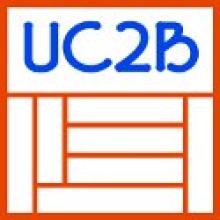WiredWest Makes Significant Progress in 2012
We enjoy bringing you news from western rural Massachusetts and the WiredWest Cooperative. We want to share the update on 2012 activities and some of the plans for 2013.
Sixteen new towns became members in 2012, which brings the grand total to 42. Business planning progressed during 2012. From the WiredWest newletter:
Significant work was undertaken in 2012 to enable financing and buildout of the network. That work was made possible by grants from the Massachusetts Broadband Institute, Berkshire Regional Planning Commission and the Central Berkshire Fund, in addition to support from donations, Cooperative membership fees, and thousands of volunteer hours.
The group also conducted a market survey in member towns. WiredWest confimed that demand is strong in the region. The organization is using the information to determine what services to offer and to support pro-forma financial statements, developed with help from groups that know the ins and outs of community broadband:
WiredWest has created comprehensive pro-forma financial statements with input from other municipal fiber networks and appropriate financial expertise. The leadership team has met with a number of public and private financing sources and advisers to refine our financing strategy and put the project on track for financing in 2013.


